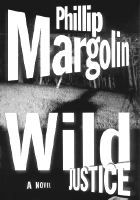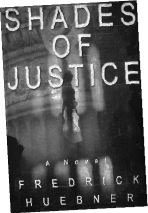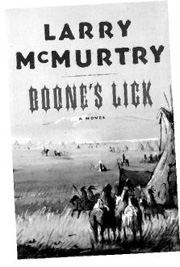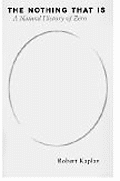AMONG CRIME FICTION’S numerous clich鳬 none is more familiar than the good, innocent, and unjustly persecuted murder suspect. The man or woman charged with criminal behavior only because of conspiratorial connivance or police incompetence. The person with whom every reader is supposed to relate and whose rescue at the end of the yarn is designed to show that the justice system works after all.
WILD JUSTICE
by Phillip Margolin (HarperCollins, $26)
By consciously playing against this clich鬠Phillip Margolin distinguishes his work from today’s landslide of legal thrillers. Rarely are his defendants angelic; they may be guilty as hell. Margolin established this theme in his second book, The Last Innocent Man (1981), which starred an ambitious and brilliant young Oregon advocate who, contrite after winning acquittals for a series of lowlifes, jumps to the protection of a client he believes is clean-handed—only to have that faith tested with each successive chapter. In his later novels, including After Dark (1995) and the best-selling Gone But Not Forgotten (1993), Margolin’s protagonists often find themselves representing people who, if they aren’t actually villains, are certainly vile.
It’s a situation familiar to this Portland lawyer-turned-litterateur, whose quarter-century of defending clients in criminal court lends resonance and reality to his tales. As Margolin has insisted before, “a criminal defense attorney should represent anyone, no matter who they are or what they’ve been accused of doing.”
Which isn’t to say that it’s easy for a lawyer to defend somebody he or she thinks is putrid as pond scum. Or, worse, a remorseless murderer. Just ask Amanda Jaffe, the idealistic, recent law school grad whose parallel struggles to make a reputation for herself and make sense of serial homicides form the foundation of Margolin’s latest reticular plot in Wild Justice.
Returning to Portland to work in the firm and shadow of her renowned attorney father, Frank, Jaffe is drawn into the defense of a talented but arrogant—and familiarly violent—surgeon named Vincent Cardoni. An anonymous tip originally leads the cops to suspect the doctor is purchasing cocaine from a notorious local drug trafficker (and dealer in human organs). However, Cardoni becomes a significantly more serious problem after police detective Bobby Vasquez discovers a pair of severed human heads neatly bottled in the basement of Cardoni’s mountain retreat. Nine corpses are found buried nearby, all showing “evidence of torture.”
Although Cardoni insists that “someone is framing me” for this horror—probably his estranged wife and fellow surgeon, Justine Castle—the case against him seems overwhelming; police even find a videotaped record of one woman’s torture. It’s only due to Vasquez’s overzealous efforts at proving Cardoni’s misdeeds that Jaffe and her dad find the means to liberate their client. And then, once free, the surgeon promptly disappears, leaving his attorneys satisfied with their win . . . but more than a little uncomfortable with Cardoni’s return to the streets.
JUMP AHEAD FOUR years, to the night when a much more experienced Amanda Jaffe is awakened by a phone call from Justine Castle, asking for help. It seems that sheriff’s deputies have found the doctor fleeing a grisly scene eerily similar to that which almost landed her hubby on death row. Again, the evidence seems damning. And once more, the suspect declares herself the blameless victim of a set-up, except this time, Castle pins responsibility on Vincent Cardoni—a man rumored to have died. Could there be a copycat killer afoot? Has Cardoni returned from the grave to ply his grisly trade? Or have the Jaffes and the cops been wrong all along about the serial killer’s identity?
An engaging wordsmith, particularly adept at leavening his suspenseful story buildups with humorous courtroom episodes (likely inspired by his own adventures before the bar), Margolin also boasts an enviable knack for misdirection. Perhaps best demonstrated in After Dark, with its “gotcha” denouement, Wild Justice has its own share of hairpin plot turns. Two-thirds of the way through, both Cardoni and Castle are as unlikable as any character from an Ayn Rand novel; either one would make a satisfactorily sadistic slayer. Amanda Jaffe’s employment of Bobby Vasquez, a man hungry for redemption after his misbehavior in the Cardoni fiasco, as her investigator in the Castle matter adds more fine complications to this tale.
Disappointingly, Margolin too clearly telegraphs the solution to this mystery well in advance of its closing pages. Only Ms. Jaffe has an excuse for ignoring the elephant-sized clues, and once she does figure it all out, her shock seems inadequate, her subsequent actions incredible. After working so hard to avoid courtroom-thriller clich鳬 Margolin resorts in the end to a Hollywood action clich頴hat will have his fans shouting “Objection!”









